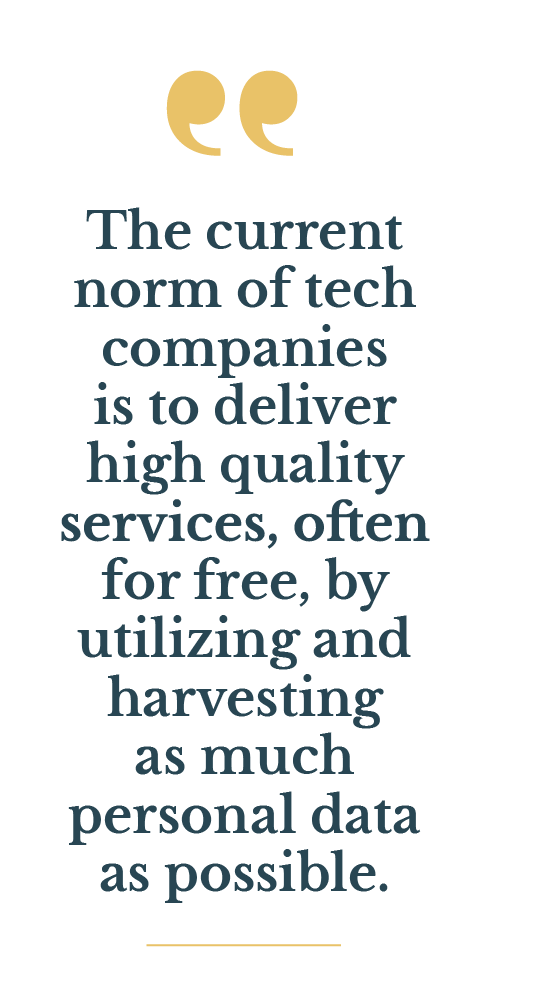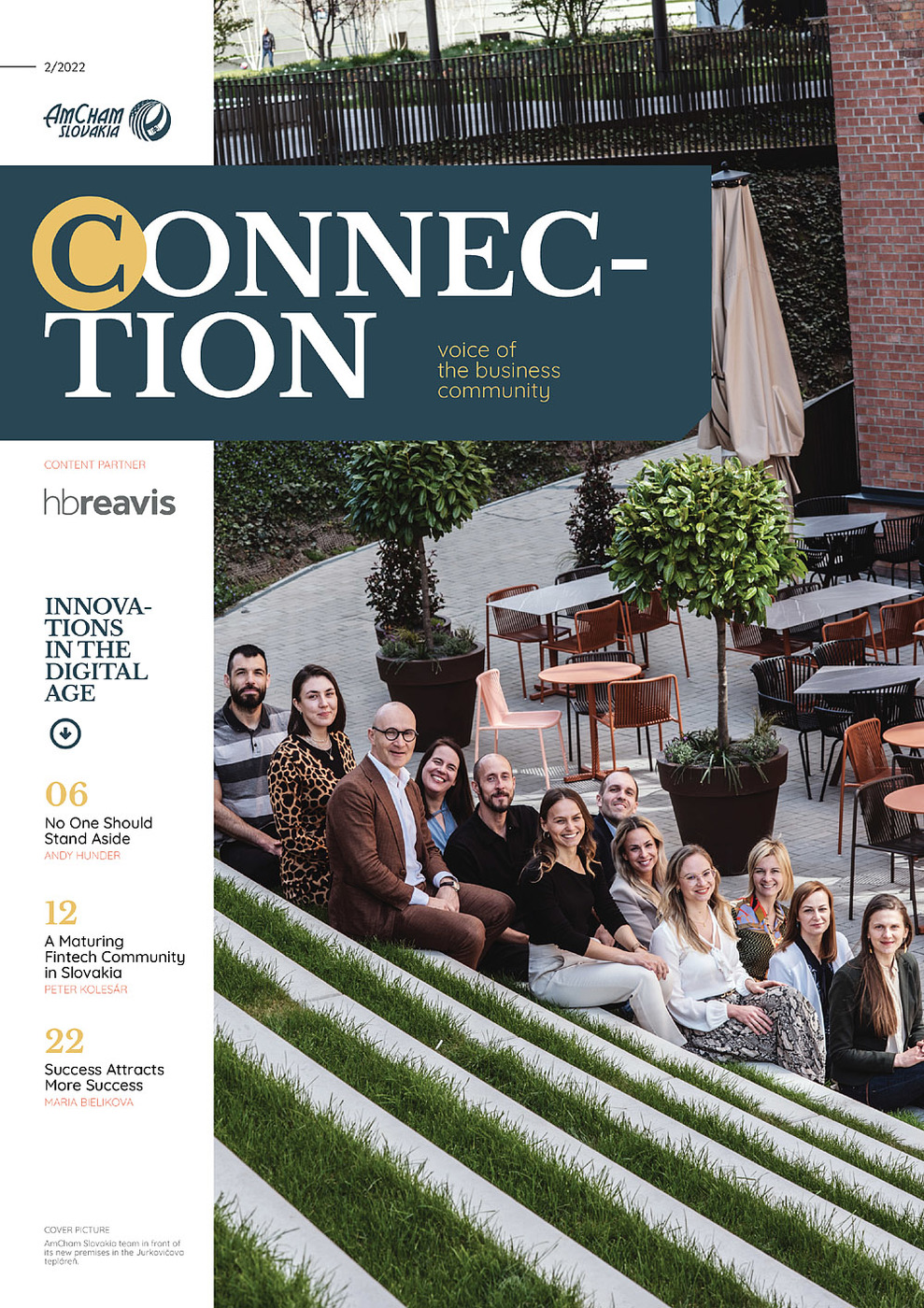Innovation cannot happen because data is locked
For example, a potential app might suggest routes and modes of transport by combining general knowledge about weather, schedules and rental pick-up sites with calendar and location data from a person’s smartphone and preferences for walking and reducing the carbon footprint. There are many efforts to decentralize the internet and to empower people. But it is not an easy task to change the system of closed online platforms that have been evolving over almost two decades.
The current norm of tech companies is to deliver high quality services, often for free, by utilizing and harvesting as much personal data as possible. Essentially, the market has become a ruthless competition of who has more data, rather than an innovation race of cutting-edge technologies for privacy-preserving data analytics and ethical artificial intelligence (AI).
 GDPR sets the boundaries to what is possible and at the same time creates opportunities for innovation
GDPR sets the boundaries to what is possible and at the same time creates opportunities for innovation
According to Ray Kurzweil’s Law of Accelerating Returns, the pace of technology advancements is exponential. However, based on the statements before, we could argue that the most prestigious companies in the information technology industry could be halting this progress as they do not let the new fuel of the 21st century in the form of personal data flow as the user wishes.
Furthermore, new tech entrants have yet another barrier in the form of 2016‘s General Data Protection Regulation universally known as GDPR. Legal liabilities to store and use data defined in the GDPR are much easier accepted by established companies with many resources and lawyers than by new entrants. One feasible way to overcome this barrier would be to see GDPR as an opportunity for novel technology that will equip the citizens with the tools to manage their own data, share them and raise complaints about their usage or accuracy, thus helping to protect their digital privacy and to improve digital services.
In 2017, merely a year after the introduction of GDPR, Sir Tim Berners-Lee, known as the inventor of the World Wide Web, saw this opportunity and presented an open-source project called Solid, to ensure GDPR-compliant and globally interoperable person-to-person or person-to-company sharing and to alleviate the burden of companies and application developers to store data.
How Solid corrects the ongoing data race
Solid is a combination of existing World Wide Web (W3C) standards (such as Access Control List, Web ID and Resource Description Framework) with a new way of building Web applications with emphasis on giving control over data back to individuals. New W3C standards for consent management and Linked Data Platform were defined in an ambitious MIT project, led by Sir Tim Berners-Lee, who later shaped the Boston-based company named Inrupt that offers the enterprise version of Solid.
Inrupt and other similar companies offer user-controlled data-storage service called a Solid pod – a place where people can store and link their personal data that they created themselves with all the data others created about them. Users then get to make the final decisions regarding who and what services are allowed to access their data stored in pods. Solid-based apps allow users to exchange personal data with each other regardless of which actual app they use, very much like e-mail communication works.
This personal data exchange such as online behavior data can even be monetized. Solid thus creates better offering for all parties by creating separate markets for applications and separate markets for the data, reintroducing competition based on the service quality and user privacy.
My Data Concept implemented the Slovak way
In Slovakia, ongoing implementation of the My Data Management project, a national project implemented by the Ministry of Investments, Regional Development and Informatization, is also based on the Solid standards and best practices for international data interoperability. The main goal of the project is to create an ecosystem where citizens get their verified digital copy of their government-generated personal data and access to innovative personalized services that respect their chosen level of privacy.
For example, citizens would no longer need to wait in lines and file requests for information at several public and private institutions in various life situations, such as a loan application. The solution is fully compliant with the GDPR. Furthermore, the project makes use of Semantic Web technologies for data modeling and standardization to get the data quality and interoperability to the next level. This approach, if implemented correctly, ensures that the machines will understand the meaning of data stored in pods all around the world without human intervention. It gives rise to AI powered Smart Assistant services that will for example help to navigate the user’s communication with public institutions (for example related to the birth of a child or unexpected unemployment), based on access to personal data and other publicly available data.
Dagmar Ceľuchová Bošanská, Chairman, Futuristiq
Filip Nguyen, Analyst, Futuristiq




Follow us